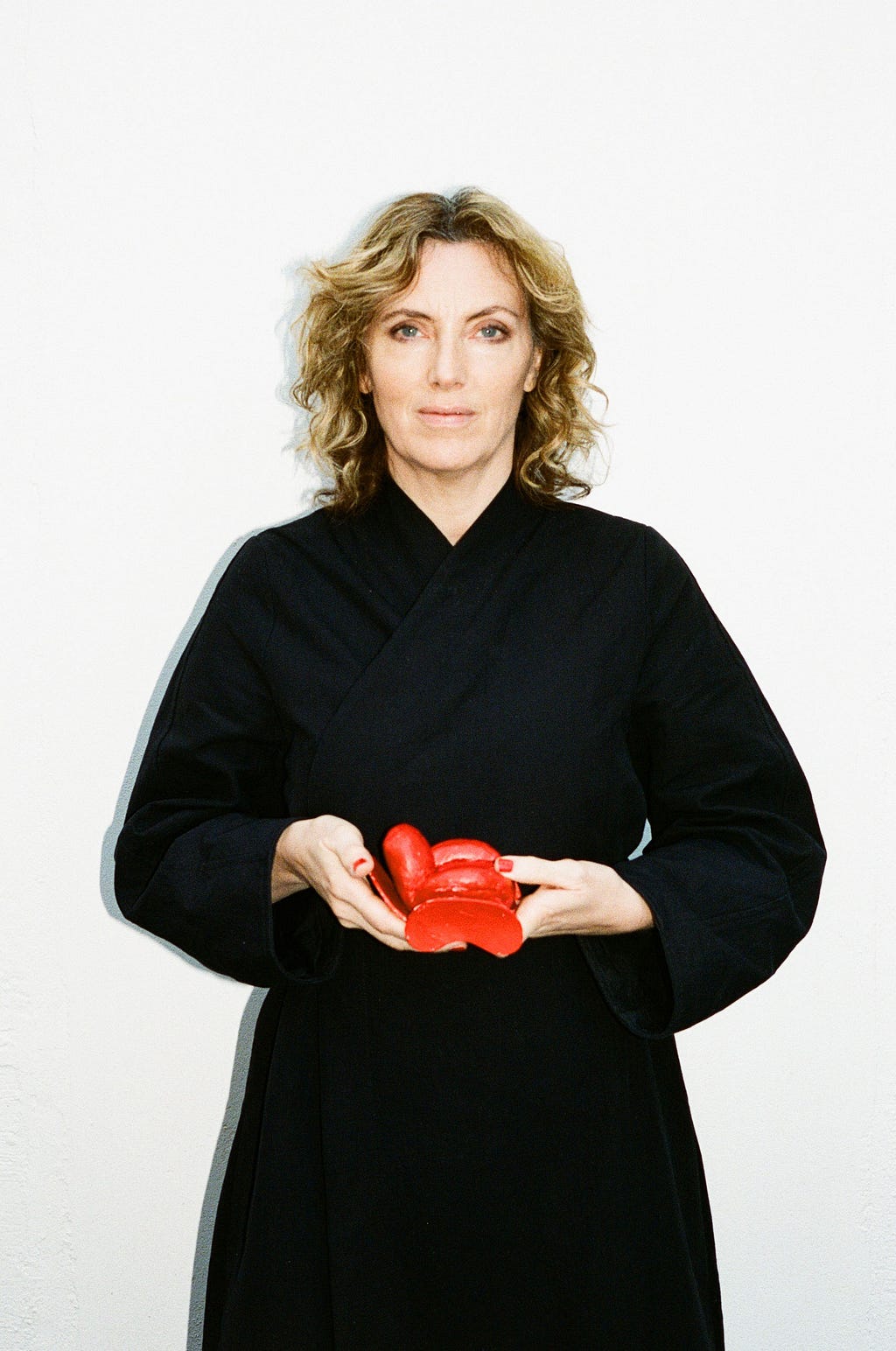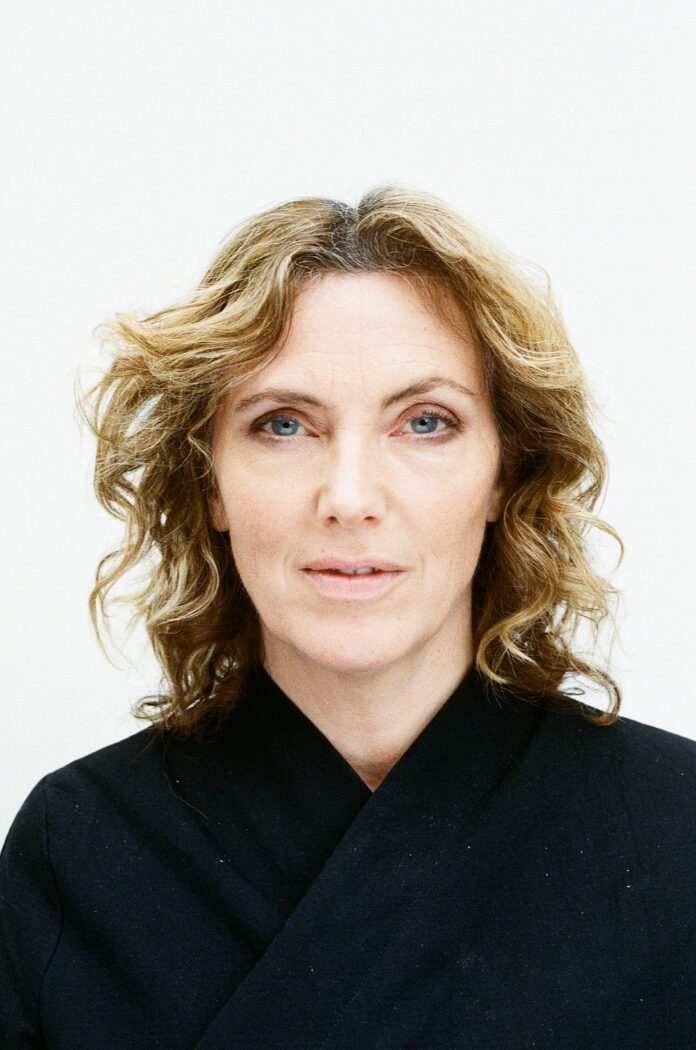Faye Toogood Of Poltrona Frau On Five Things You Need To Create A Highly Successful Career As A Commercial Designer
An Interview With Athalia Monae
Collaboration — there is always something that you could be learning about or bringing outside expertise to your work. For example, I couldn’t have realised the Squash Collection without Poltrona Frau’s expertise in leather craftsmanship.
As a part of my series about the ‘Five Things You Need To Know To Create A Highly Successful Career As A Commercial Designer,’ I had the pleasure of interviewing Faye Toogood.
Faye Toogood is a British artist and designer whose practice encompasses interior design, homewares, fine art and fashion, and refuses to be constrained by a single discipline or defined way of working. Toogood has become one of the most recognizable figures in the design and art industry, whose work has been exhibited and collected by museums around the world, including The Victoria and Albert Museum in London, the Philadelphia Museum of Art, among others. Toogood brings a distinctly sculptural approach to the art of furniture design and often describes herself as an ‘outsider’ whose work defies categorization, which is present in her own design studio and beyond.
Thank you for joining us today! What’s the most interesting or amusing experience you’ve had in your career so far, and what lesson did you learn from it?
Collaborating with a brand such as Poltrona Frau has been a huge milestone in my career. The opportunity to work with such masters of craftsmanship to realise my designs is always so rewarding. Throughout my experience as a designer, I have been lucky enough to have touched a wide variety of disciplines, from fashion to sculpture, homeware, and furniture. In my experience creating my own studio and collaborating with prominent brands such as Poltrona Frau, Comme des Garçon, Birkenstock, and more, I have been amazed by their receptivity to my untraditional aesthetics and design influences. My lack of formal design education has often left me feeling like a misfit, but as a result, this pushed me to create without looking backward.
Do you have a favorite life lesson quote? Can you share a story about how it has been relevant in your life?
“Today’s assistant, tomorrow’s boss” is a guiding principle I carry into every facet of my career. I believe it is crucial to treat everyone, regardless of their role, with the same level of respect and consideration, recognizing that every role is valuable and can impact yours more than you might think. This philosophy shapes how I engage with potential collaborators and fellow artists, and how I operate in my studio.
As a successful business leader, which three character traits have been most crucial to your success? Can you share a story or example for each?
Three key traits that have significantly contributed to my success as a leader are my ability to listen attentively and actively, my use of effective organisational tools, and my willingness to embrace my fears. Listening to my colleagues or collaborators is imperative for the success of a project. Although organisational skills didn’t come naturally to me at first, I learned the hard way and realised that productivity is directly impacted by the systems I put in place to keep me and my team focused. Organisation is also fundamental in balancing my busy work life with family time. My lack of a traditional design education has led me to embrace my fearless creativity. I am constantly testing myself with new materials, textures, patterns, and more. If I let fear get in the way I wouldn’t be where I am today. We are all misfits but that is the glory in it all.
Can you describe a recent project you completed and what your specific contributions were?
In collaboration with iconic Italian furnishings brand, Poltrona Frau, I recently launched the Squash collection which features an armchair, mirror, ottoman, side table, and rug. The collection aims to redefine the essence of luxury with bold and contemporary pieces. I started out with the goal of creating something sculptural but also soft to bring a playful and sensual perspective to Poltrona Frau’s unparalleled craftsmanship. I wanted to bring some of my own heritage to the collaboration, and so you’ll find details that nod to English Folk Art. The idea to create leather mirrors was my personal response to early English leather folk work — a conversation between something hard and something soft. When I started to show Poltrona Frau images of early English folk pieces, we found there were many shapes that mirrored those in their archive in Italy. The two shared forms from completely different cultures and contexts. Furniture design is tactile and alive, and it connects us through history. I wanted to celebrate Poltrona Frau’s expert leather craft, but propose a different way of thinking about how the material could be used. Rather than being perfectly taught, the leather of Squash is wrinkled, giving it movement and malleability. The pieces embrace you, there’s nothing rigid about them.
How do you approach balancing aesthetics and functionality in your designs?
Although pushing the boundaries of creative design is at the heart of what I do, I ensure that my pieces are versatile and have a timeless quality to complement a wide range of spaces, whether modern or traditional.
What is your design philosophy when it comes to commercial spaces?
My work is and always has been rooted in four integral concepts — drawing, material, sculpture and landscape. Moving away from traditional design in commercial spaces is what I want to further emphasise in my career as a designer. My approach to commercial design is intuitive, expressive and partly poetic. There is a purposeful rawness in my designs but everything that I produce must be relevant, desired and have a place.
Where do you draw your inspiration for your designs?
My narrative-driven design is often personal. I am deeply passionate about the rural landscape, nature and the elements. They are a constant source of inspiration for me on palette, materials and geometry. I apply a sculptural approach to everything I do and I’m incredibly passionate about materials which are often the starting point of each project.
How do you approach sustainability in your commercial projects?
In a world where it’s impossible to argue that we need more products, my approach to
sustainability is to design furniture and environments that are timeless rather than trend-driven. I design furniture with longevity in mind — through materiality and craftsmanship, form and function. My wish is that my furniture will be valued and passed down through generations. My most recent furniture Assemblage 8, includes Gummy upholstered furniture and Palette wooden tables that use all-natural, sustainably sourced materials.
What impact do you think remote work and digital transformation will have on the design of commercial spaces?
I have always recognized the value of embracing innovative techniques to enhance my work. During the pandemic, I was beyond grateful that my work process remained relatively uninterrupted, thanks to the advanced technologies and communication tools that my team and I already had in place in our processes. As a studio, we do however value the importance of coming together to work on projects and we embrace a balance between remote working and attending the office. I think this goes for the client-designer relationship as well; so much can be done remotely, but in-person meetings and regular site visits remain essential for a successful project.

What are the five things you believe are essential for creating a highly successful career in commercial design? Can you share a story or example for each?
- Collaboration — there is always something that you could be learning about or bringing outside expertise to your work. For example, I couldn’t have realized the Squash Collection without Poltrona Frau’s expertise in leather craftsmanship.
- Experimentation — My work wouldn’t be where it is today if I didn’t embrace my curiosity. Experimentation has been key to developing work in new forms and materialities.
- Personal Expression — bringing your true self and vision to the table is essential in creating a successful career in design. Sticking to your heritage and expressing your distinct design is key.
- Alignment — not all projects are a good fit! It is perfectly fine to decline a collaboration or a new project if you are not sure that it aligns with your personal goals and design vision.
- Trust — I wouldn’t be where I am today if I didn’t trust my design visions. Of course, I was fearful that they might fail, but I knew I wouldn’t be successful if I never tried.
What role do you think commercial design plays in community building and social interaction?
Commercial design can widely impact social interactions and community, and some commercial design techniques can inevitably discourage people from resting, interacting or even wanting to spend time in a space. The commercial spaces I have designed for have been primarily in retail. I have enjoyed bringing my love of materiality to these spaces through the implementation of heritage and cultural influences, combined with a modern aesthetic to create warm, tactile immersive environments that invite people to dwell.
Given your influence, if you could inspire a movement to bring the best results and solutions to the greatest number of people, what would it be? You never know what impact your idea might have!
Something that I want the design world to embrace more is encouraging the presence of comfortable design. We often see interiors fall flat in one aspect, whether it be usability, adaptability, or texture. I would love to see a sense of welcomeness and comfort in interiors, not just in residential spaces.
How can our readers follow your work online?
You can follow Toogood on Instagram @ t_o_o_g_o_o_d. Toogood is my London-based design studio and our website has more information about projects and is updated frequently with collaboration announcements and more.
Thank you for your time and excellent insights! We wish you continued success.
About the Interviewer: Athalia Monae is a product creator, published author, entrepreneur, advocate for Feed Our Starving Children, contributing writer for Entrepreneur Media, and founder of Pouches By Alahta.
Faye Toogood Of Poltrona Frau On Five Things You Need To Create A Highly Successful Career As A… was originally published in Authority Magazine on Medium, where people are continuing the conversation by highlighting and responding to this story.


